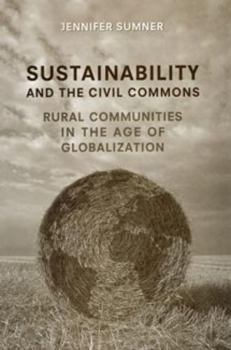Sustainability and the Civil Commons: Rural Communities in the Age of Globalization
Select Format
Select Condition 
Book Overview
Often used but little understood, the word 'sustainability' is potent in its ability to evoke a better world based on economic, social, and environmental justice. The concept of sustainability, however, has been strikingly under-theorized. Sustainability and the Civil Commons provides what has been lacking since the publication of the Brundtland Report - a firm foundation and a clear vision of alternatives.
Using rural communities as her reference-point, Jennifer Sumner exposes the unsustainable impacts of corporate globalization, and develops a framework to explain why current definitions of sustainability are profoundly inadequate. From this foundation, she allies sustainability with the concept of the civil commons - including universal healthcare, environmental protocols, workplace safety regulations, and public education - demonstrating how globalizing the civil commons, not corporate-sponsored trade treaties, opens the way for truly 'sustainable globalization'. Sustainability and the Civil Commons moves beyond rural roots through Antonio Gramsci's model of hegemony, J rgen Habermas's theory of communicative action, and John McMurtry's life-value ethics to build a comprehensive understanding of sustainability that combines global reach with local focus. It will be an invaluable resource for scholars and practitioners interested in sustainability, globalization, community development, and rural studies.





